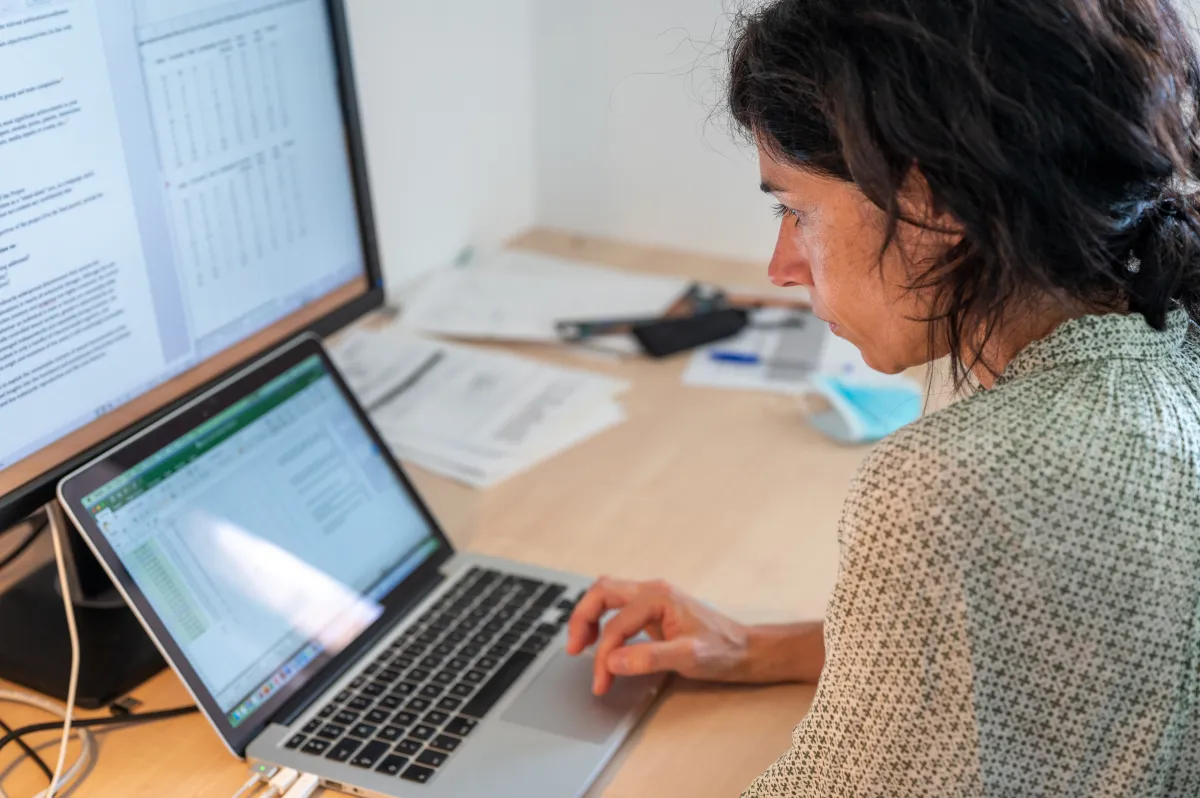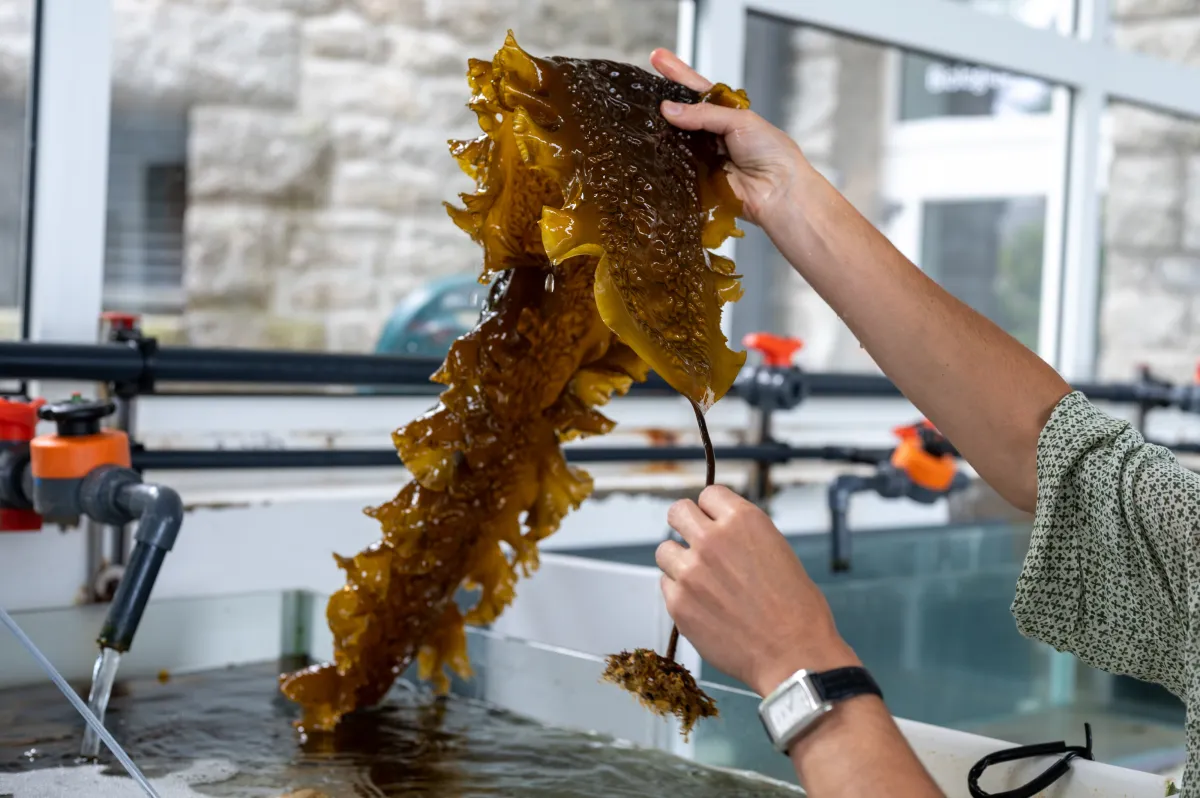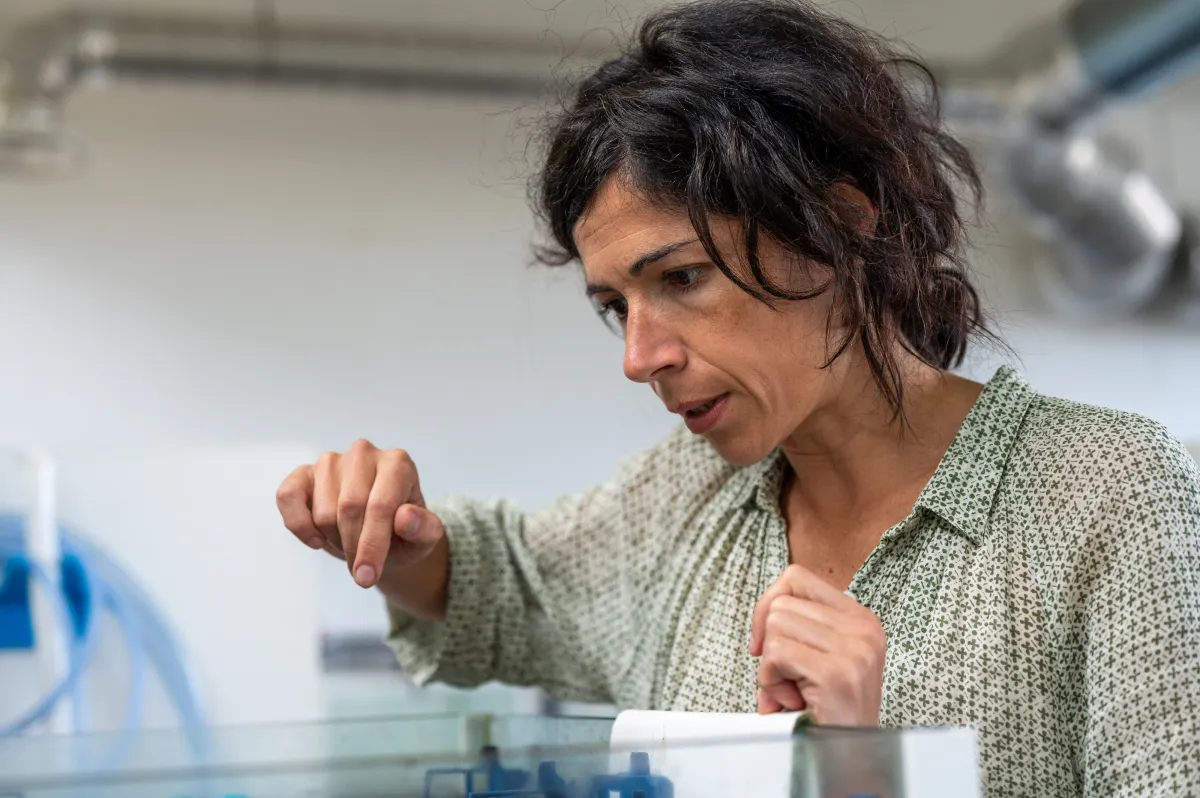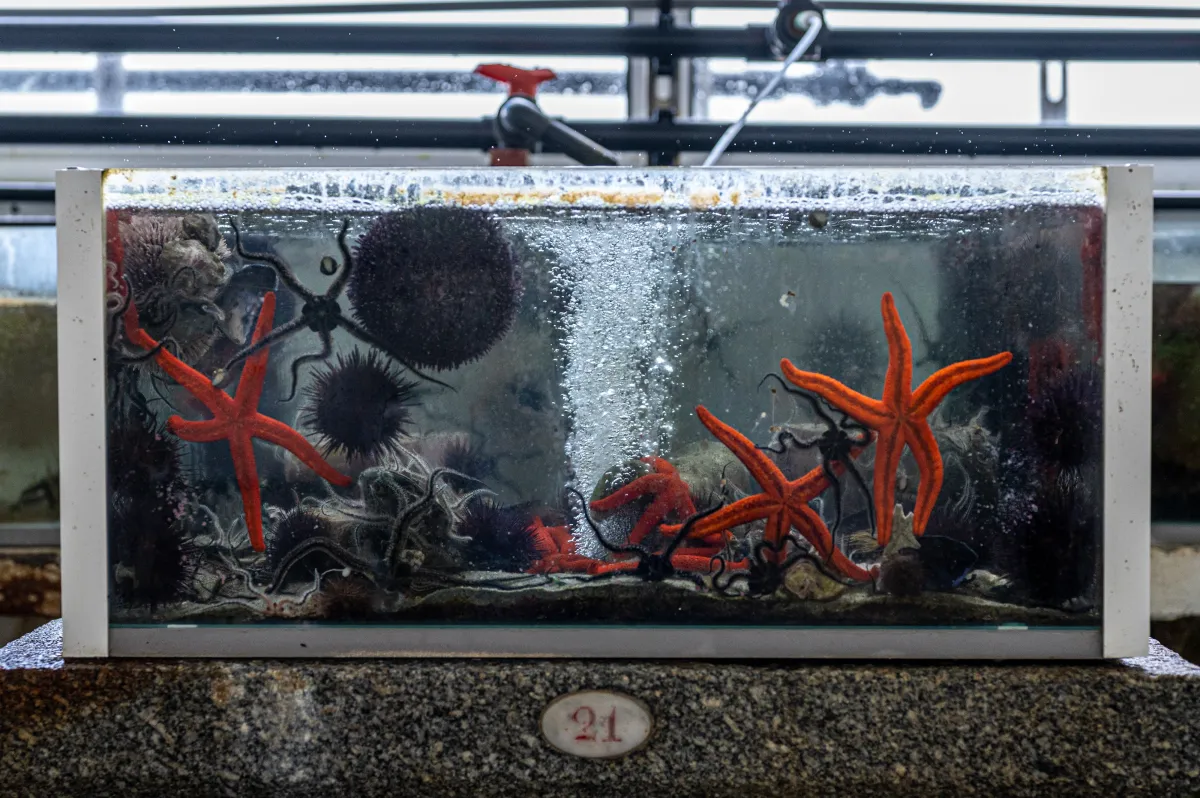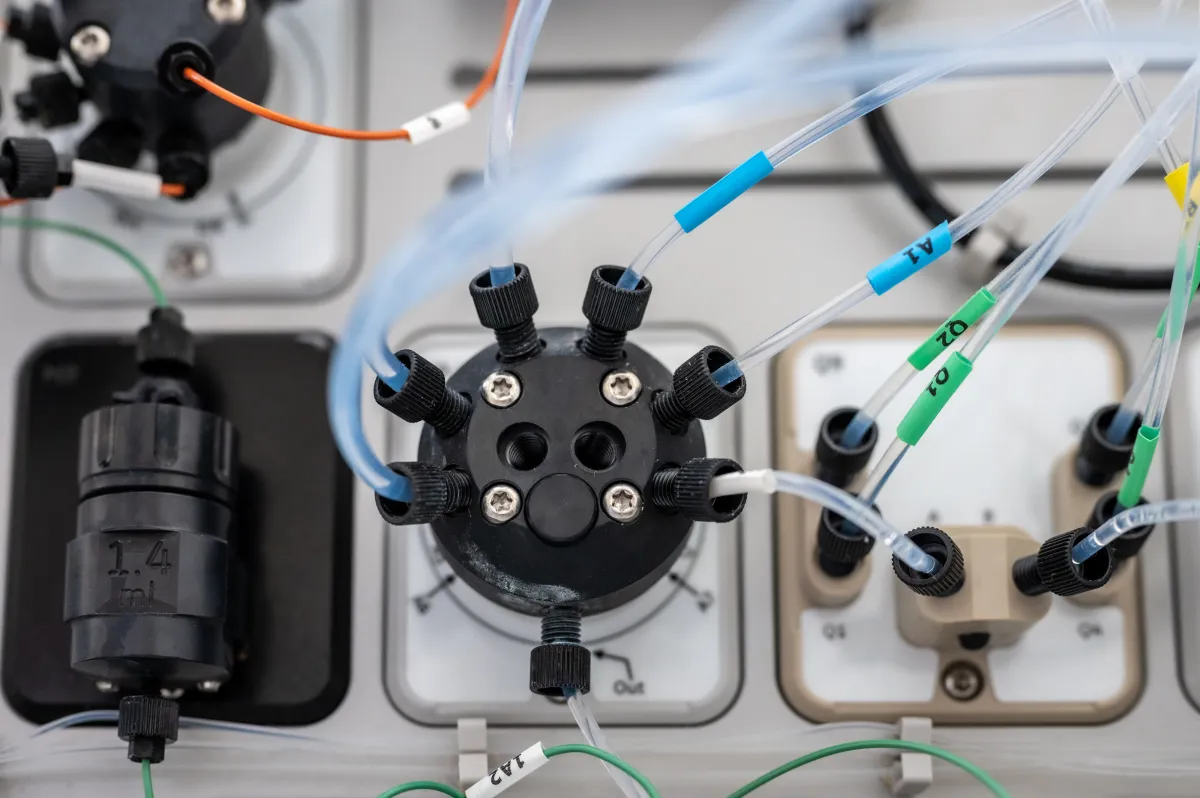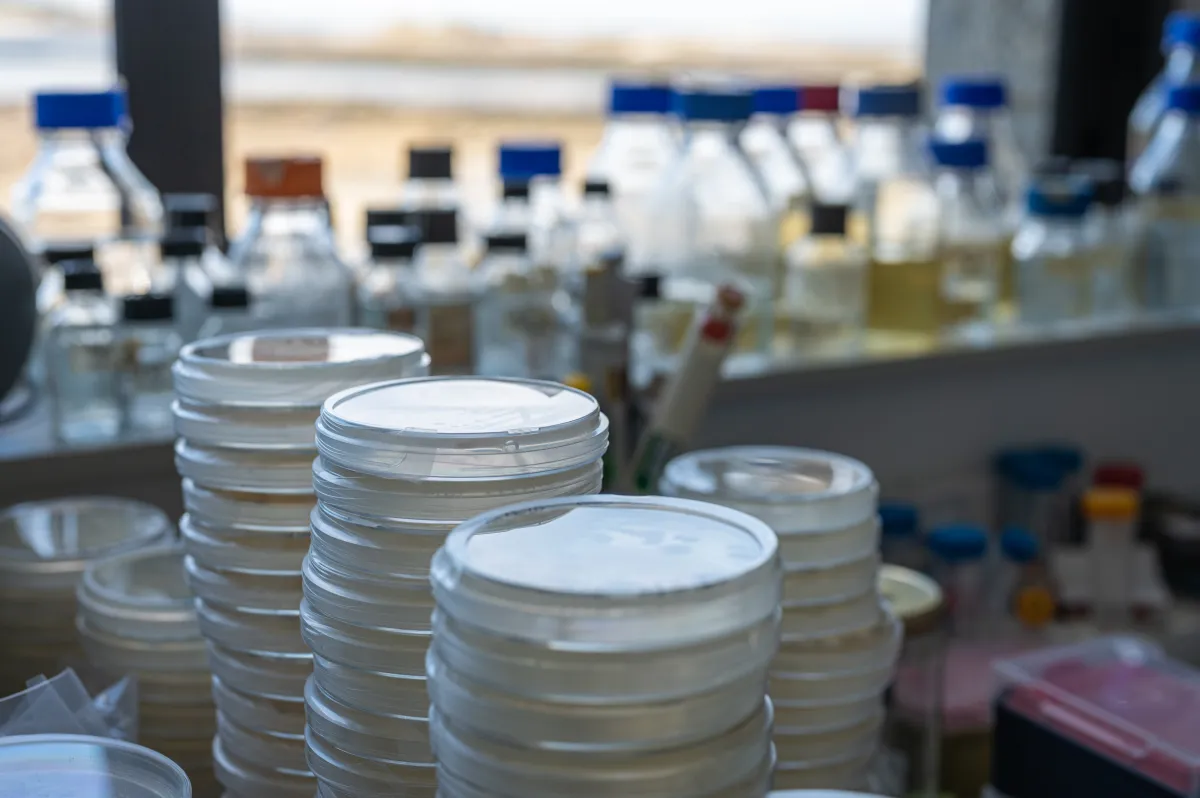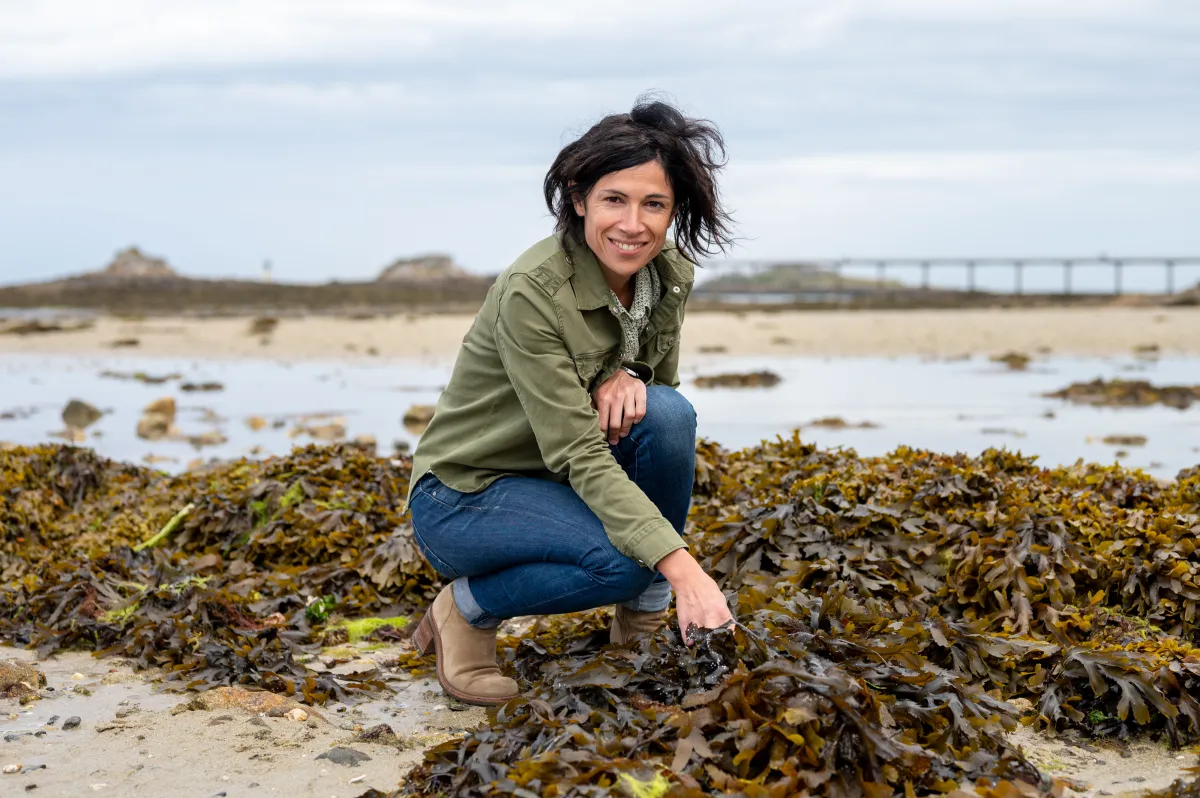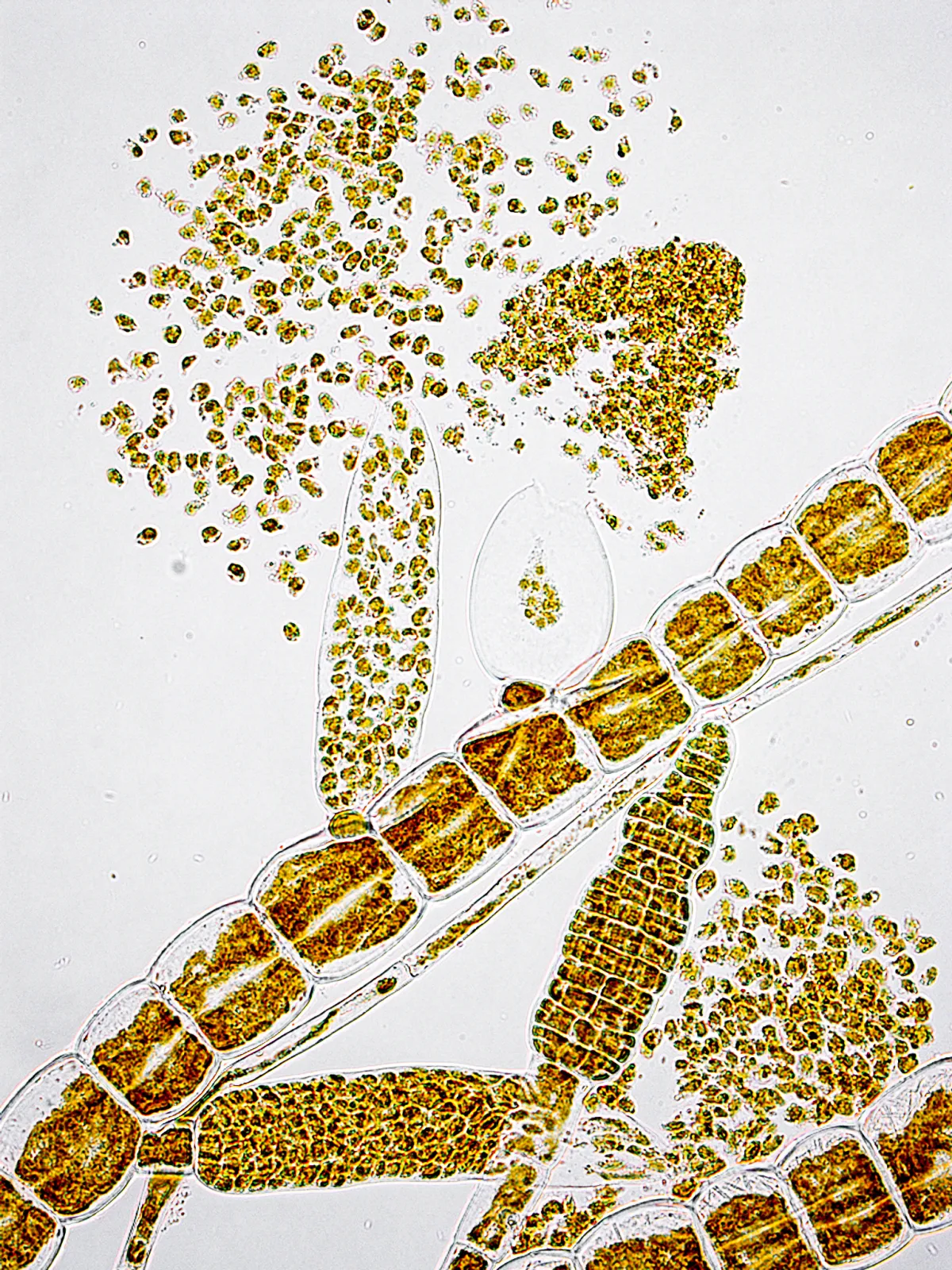Susana Coelho Understanding the evolution of reproductive systems through the biodiversity of brown seaweed
Susana Coelho, CNRS Research Director, co-leader of the Algal Genetics team at the Roscoff Biological Station’s Laboratory of Integrative Biology of Marine Models
- 2020 • Bettencourt Prize Coups d'Élan pour la recherche française
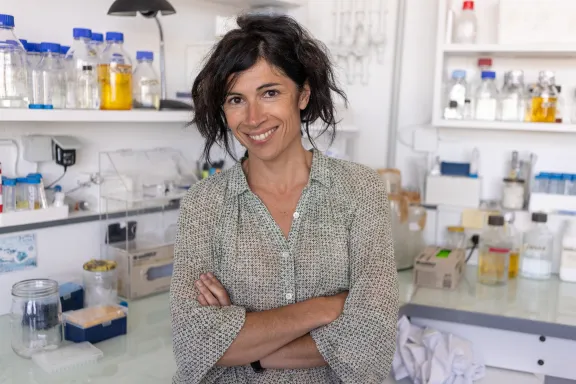
The 2020 Bettencourt Prize Coups d'élan pour la recherche française was awarded to Susana Coelho, a researcher in cell biology, for her work on the sex chromosomes of brown seaweed.
The amazing variety of brown seaweed reproduction methods
Understanding the evolution of sexual reproduction and the diversity of mechanisms that determine the sex of individuals is a fundamental challenge in biology. Innovative research on brown seaweed can shed light on these issues.Brown seaweed has an amazing variety of reproduction methods and life cycles. Susana Coelho and her team study this diversity. Researchers observe the sexual characteristics of seaweed to study the origin and evolution of reproduction, focusing on two key developmental processes: life cycle regulation and sex determination. Their work has already shed light on the development of sex chromosomes in a lineage of brown seaweed that has evolved independently of plants, animals and fungi for over a billion years.
At the heart of development
Dr. Coelho combines genetics and molecular evolution and bio-computer tools with her expertise in seaweed biodiversity to understand basic issues with regard to development and its genomic, ecological and evolutionary implications. Her interest in marine ecosystem adaptation dovetails with the environmental, health and societal challenges facing the planet today. Eventually, control of the seaweed reproductive cycle could spur biotechnology in the areas of nutrition, medicine and cosmetics.
The foundation’s support
The Bettencourt Prize to Boost French Research will allow Dr. Coelho to acquire a phenotyping platform specially designed for seaweed, which is essential for her experiments. The platform will be shared with other research teams at the Roscoff Biological Station.
"The seaweed model teaches us that the complexity and diversity of life is a source of progress for humanity." Susana Coelho
Susana Coelho in a few words
Susana Coelho specializes in reproductive systems and their evolution. She wrote her PhD thesis in biology on seaweed’s response to water stress.
During her post-doctorate training at the Roscoff Biology Station, she continued her work as part of her Marie Slodowska-Curie grant and EMBO. During these years, she focused on the molecular mechanisms that control seaweed life cycles. Dr. Coelho uses ectocarpus, a filamentous brown alga with a small genome, to study the functional and evolutionary analysis of sexual determinism. Using cutting-edge methods to isolate the area of the genome specific to males and females, she and her team are discovering how the sex of algae is determined.
Dr. Coelho has been a researcher at the CNRS since 2006 and a research director since 2015 at the Biological Station of Roscoff.
Her and her team’s work provides new insight for understanding the evolution of sexual systems. Their method of comparative analysis of brown algal sex chromosomes sheds light on life cycle characteristics and the evolution of sex chromosomes, a further step in understanding biology through the tree of life.
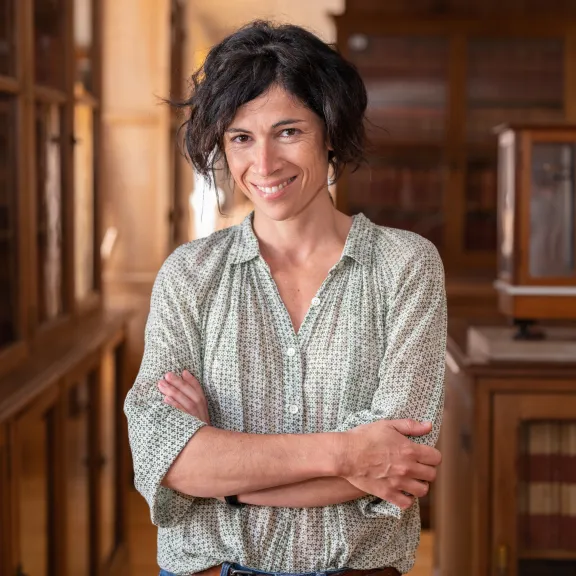
Bettencourt Prize Coups d'Élan pour la recherche française
The Bettencourt Prize Coups d'Élan pour la recherche française was created by the Foundation in 2000. It has rewarded 78 French laboratories and more than 900 researchers have benefited from this prize. Until 2021, this prize was awarded each year to four research teams, from Inserm and the CNRS Institute of Biological Sciences. The amount of the prize endowment was 250,000 euros per laboratory.
All the award-winners